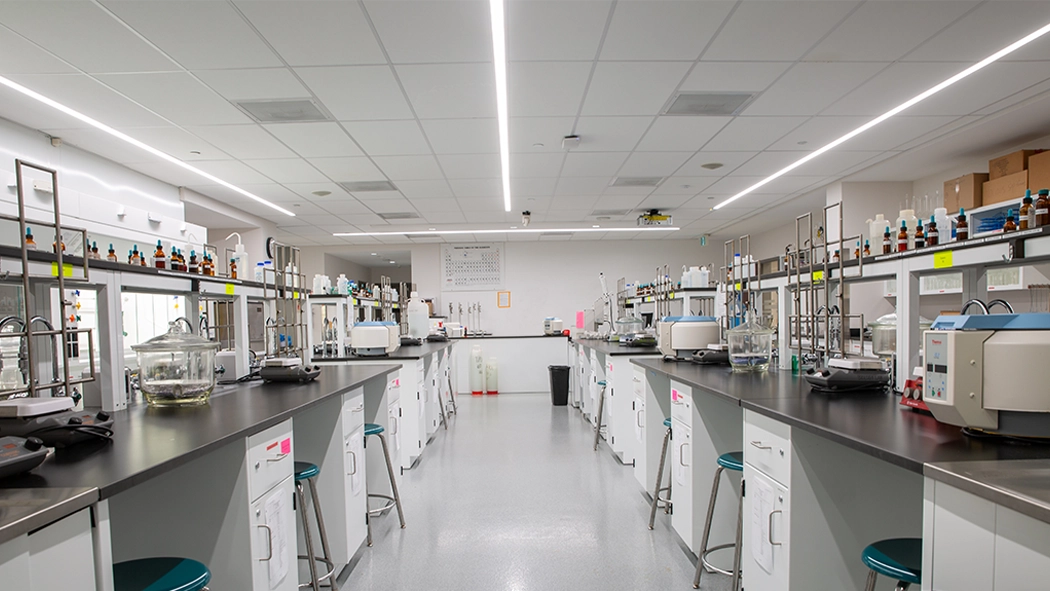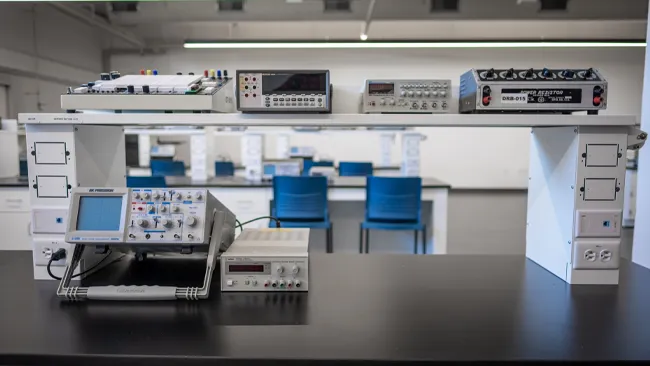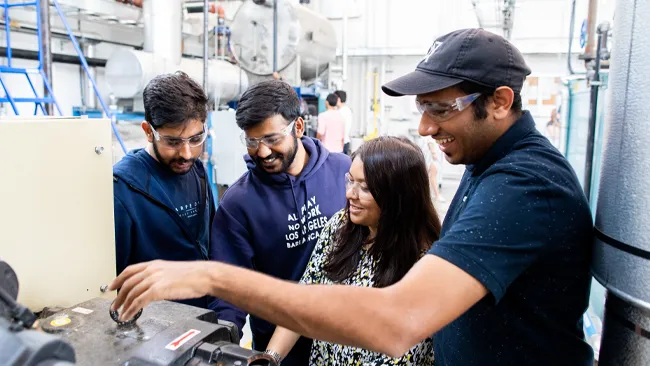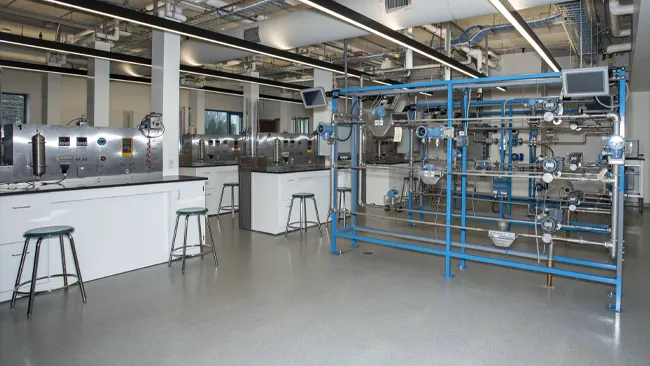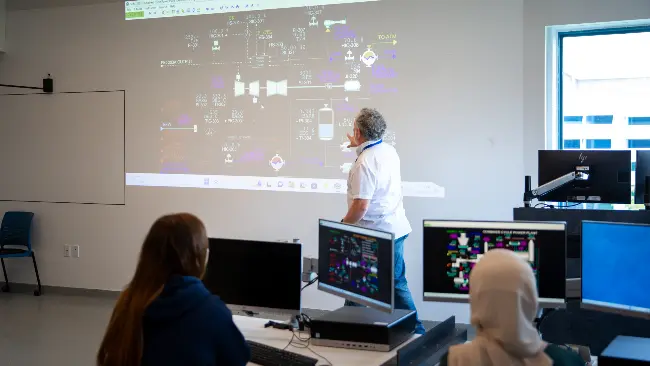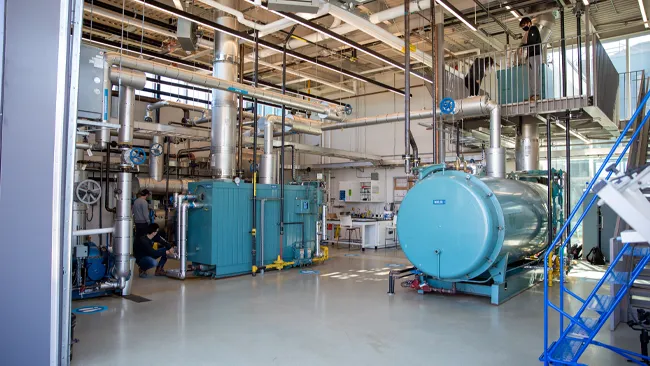
Power Engineering Techniques
Overview
Become a power engineer and shape the world's future through innovative solutions and sustainable advancements.
The Lambton College Power Engineering Techniques program introduces students to the theory, knowledge and practical skills required to operate, maintain and manage steam and power equipment in industrial facilities at the 4th Class level. Throughout Canada, only certified Power (Operating) Engineers are permitted to operate, maintain and manage rated equipment, such as boilers and refrigeration units.
The two terms provide the academic curriculum needed to prepare for the TSSA 4th Class Operating Engineers 4A and 4B Certification exams. Students who successfully complete the program also receive nine months of Qualifying Experience Time reduction towards the same certificate. Those who are eligible and complete an approved co-op position will be credited with the final three months of practical time required for the 4th Class certification.
With a co-op and successful completion of the TSSA 4A and 4B exams these students upon accepted application to the TSSA, will be 4th Class Power Engineers and will be awarded a Power Engineering Techniques certificate. Students who leave the program after academic Term 2 without the co-op term completion will have a Power Engineering Techniques certificate, but will not have completed the requirements to be a certified 4th Class Power Engineer.
Students may choose to continue their studies in the Power Engineering Technician, Ontario College Diploma program. Students can begin to work towards obtaining the 11 months of 3rd Class steam time reduction offered in the Technician program. After completion of the Technician program, students again have the option to exit the program with a Technician Diploma, or to continue their studies in the Power Engineering Technology, Ontario College Advanced Diploma where students can increase career opportunities by preparing to challenge the TSSA 2nd Class Operating Engineering examinations.
Women in Technology & Trades
Discover how Lambton College's Women in Technology & Trades (WiTT) group is empowering women to excel in technology and trades.
Visit our WiTT page for more information on mentorship opportunities, events, and resources designed to support your journey in these dynamic fields.
Learn More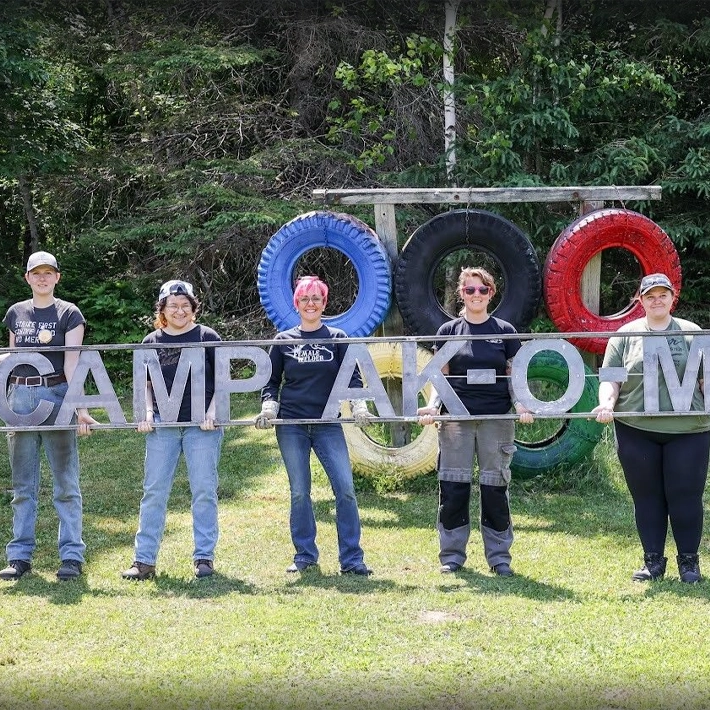
Admission Requirements
O.S.S.D. or equivalent with:
- Grade 12 English C or U
- Grade 12 Mathematics C or U
- Grade 11 or 12 Chemistry C or U
-or-
Grade 11 or 12 Physics C or U
(both recommended, only one required)
Grade 12 Mathematics Requirement
Grade 12 Mathematics for College Technology or any grade 12U mathematics is recommended; Grade 12 Foundations for College Mathematics (MAP4C) minimum final grade is 60%. If the program is highly competitive, students with Grade 12 Mathematics for College Technology or any Grade 12U mathematics will be given preference.
Mature Student Assessment for this program is available in the subject of English for the purpose of demonstrating proficiency in this required admission subject. For all other admission requirements, applicants must complete the required course(s) as listed above. For more information, please contact counselling@lambtoncollege.ca. Review the Mature Student Admission process.
Academic admission requirements can be obtained through Academic Upgrading and the Pre-Technology & Trades (PTEC) program at Lambton College.
Access to Industrial Manufacturing (AIM) Program
Students in this program may be eligible for the Canadian Skills Training & Employment Coalition's Access to Industrial Manufacturing (AIM) program funded by Employment & Service Development Canada.
The goal of this program is to support Ontario youth in their development of the necessary skills to access and success in manufacturing occupations.
Participants may be eligible for the following supports:
- Tuition paid for a certificate program related to skilled occupations in manufacturing
- Potential for a 26-week paid work placement in a manufacturing firm
- Ongoing mentoring and support throughout the program
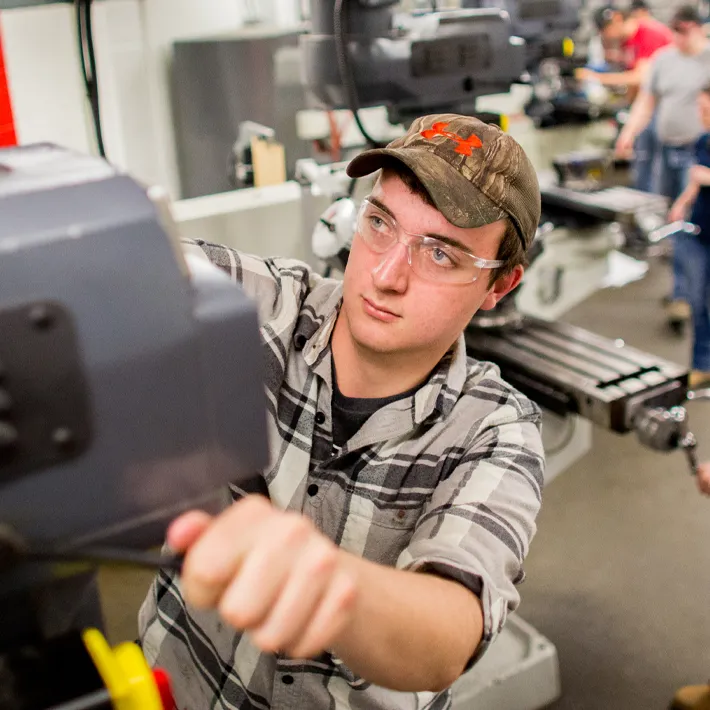
Costs
- Year 1 $6,611.89
Please Note: These fees apply to the 2024-2025 academic year and are subject to change. Fees do not include books (unless specifically noted), supplies or living costs.
Additional Fees
-
Lab Coat$40.00
-
Calculator$40.00
-
Safety Shoes$150.00
-
Safety Glasses$20.00
-
4th Class Power Engineering Textbooks$1,250.00
Scholarships Available
There are 8 scholarships available for this program, with a total value of $1,000!
Technology Requirements
In order to keep pace with the requirements of each and every course in your program, Lambton College requires that each student have access to a laptop while studying at our college.
Courses
Instrumentation for Power Engineers
This is an introductory course in instrumentation for those going into the power engineering fields. Students will develop an understanding of instrumentation terminology, symbology, and elements of instrument systems. Methods of measurement devices for pressure, level, flow, and temperature measurement will be covered in detail. Boiler instrumentation and introductory controls are highlighted for the Operating Engineering curriculum. A series of laboratory experiments will illustrate the operation of conventional and smart field instrumentation.
Operating Engineering Studies I
This is an introductory course in Operating Engineering, which will give a general overview of process equipment, systems, and techniques. The codes and regulations that apply to Operating Engineering will be discussed. Emphasis will be placed on safety concerns such as WHMIS, plant safety, protective equipment, fire protection and extinguishing equipment, and environmental impacts. Process drawing fundamentals, basic process equipment such as steam traps, relief valves, piping systems, and lubrication systems will be studied.
Operating Engineering Calculations
This course aims to provide students of engineering technology disciplines with a solid foundation in mechanics for process operation and thermodynamics for steam plant operation, to the level required for 4th Class Operating Engineer Certification by Technical Standards and Safety Authority. The emphasis is on the understanding of the theory and applying it to solve practical problems of processes and plant.
Mathematics for Technology I
This course reviews and develops concepts in algebra, trigonometry, complex numbers, and vectors with technical applications.
Critical Thinking & Writing
In this writing course, students respond to current issues and news articles via various styles of paragraphs and essays. Students practice thinking critically and organize and hone their writing to ensure clarity and correctness in their messages. Students explore different perspectives, and through synthesis, analysis, and response, strive for clarity of message and diplomatic expression of opinion based on fact. One of the pillars of Lambton College is a commitment to sustainability and equity, diversity, and inclusion, including Indigenization of the curriculum; where appropriate, readings in this course will reflect this commitment. Critical Thinking and Writing lays the foundation for a subsequent research-writing course.
Health & Safety for Industrial Processes
The graduate of this course will have a good understanding of safety aspects of the law, the legal responsibilities of the workplace, and his/her own legal rights and responsibilities, as well as work processes and procedures being used in present-day industry. This course will give them a basic understanding of the Occupational Health and Safety Act and its associated Regulations, and an understanding of health and safety issues in an industrial setting.
Chemistry for Power Engineers
This course introduces students to relevant chemical aspects. It includes a review of fundamental chemical principles including atomic structure,chemical bonding and stoichiometry. Based on these foundations, the course focuses on developing an understanding of aqueous solutions and the treatment of water and wastewater. The course is delivered as two lecture hours per week and an associated two-hour biweekly lab. The laboratory portion applies theoretical concepts to a selection of physicochemical processes and allows students to develop skills of careful manipulation and observation.
Job Search & Success
This course provides student with skills and knowledge to help support their career search and succeed in the workplace. Students align their personal skill set and goals to guide them on their career paths. They will learn how to effectively conduct a job search, build a professional and well-tailored resume and cover letter, and develop and practice interview techniques. Students will also develop their personal brand to help support effective career networking and aid in their job search. Teamwork and collaboration in the workplace are also discussed. Self-reflection is used to inspire insight and support their professional career journey.
Operating Engineering Studies - Boilers
This course covers theoretical knowledge required to understand the systems, processes, and operation of various types of power plants, and helps prepares the student for the Power Engineering Certification Examinations. Topics covered include combustion, piping, types of plants, instrumentation, boiler construction, parts and fittings, boiler operation and control, including legislation and regulations.
Operating Engineering Studies - HVAC
This course focuses on heating, ventilation, air conditioning systems, and building services. Low pressure steam and hot water heating systems, including their operations, controls, and basic maintenance, are explored. Various HVAC layouts are examined, as well as humidification systems, heat recovery, and heat gain/loss by buildings. An introduction to building lighting, water, and sanitary sewer systems is included.
Operating Engineering Studies - Equipment
Operating equipment pertaining to various types of Industries will be discussed throughout this course. It offers a practical approach to pumps, air compressors, steam turbines and engines, gas turbines, and internal combustions engines. Their principles of operation, classifications, components, basic maintenance and troubleshooting will be explored and investigated through both theory and hands-on applications. This course also offers an overview of an array of process systems, such as flares and different utility systems, which rely on industrial equipment to operate.
Refrigeration Theory & Systems I
This course covers the thermodynamics of refrigeration systems, classes of refrigerants and a thorough understanding of both vapour compression and absorption refrigeration systems. Compressors and heat transfer equipment as applied to refrigeration systems are covered. The operation, safety, controls, and maintenance of these systems are included, and applied to refrigeration trainer systems on site.
Power Plant Maintenance
Students will gain knowledge of application of common hand tools, mechanical fasteners, hoisting equipment and power tools. There will be opportunity to work in the shop to gain practical experience with related tools and equipment. Equipment applied for hands-on experience includes pumps, compressors, and piping.
General Education Elective
Co-op
Co-operative education provides students with the opportunity to apply classroom learning to the workplace, undertake career sampling and gain valuable work experience that may assist students in leveraging employment after graduation.
Contact
Program Information
Applied Science, Engineering Technology & Trades
After Graduation
Employment Opportunities
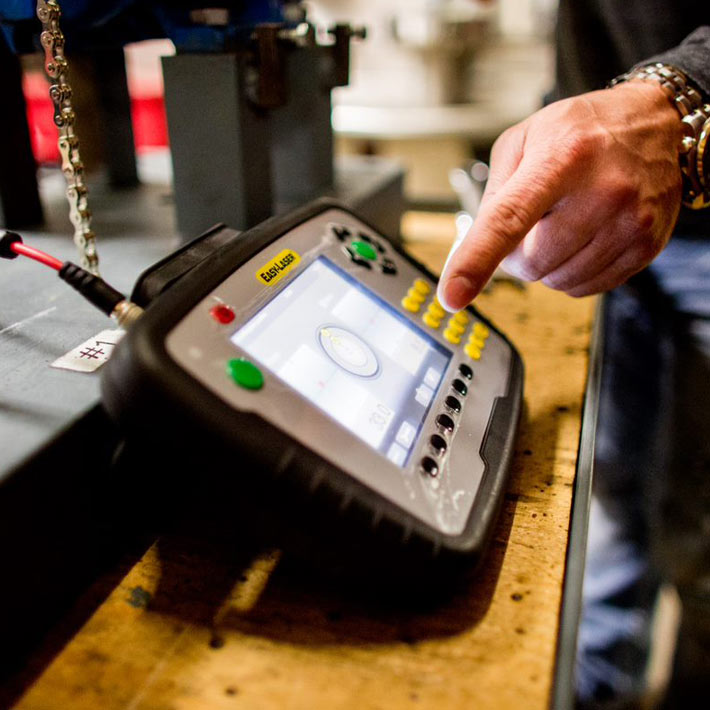
Career positions may include, but are not limited to: auxiliary plant operator, building systems technician, control room operator - electrical power systems, distribution control operator - electrical power systems, electrical power systems operator, energy from waste plant operator, load dispatcher apprentice - electrical power systems, nuclear generating station field operator, nuclear reactor operator - electrical power systems, power dispatcher - generating stations, power engineer, power plant operator, power plant stationary engineer, stationary engineer.
Co-op
About Co-op
Students in this program have the opportunity to gain valuable work experience by applying classroom learning during co-op experiences.
Learn more about co-op terms and the roles and responsibilities of students and co-op advisors.
More Information
Technology Requirements
It is recommended that students purchase a laptop with a Windows operating system.
Internet Speed Requirements
For best performance for students learning remotely, an internet connection with a minimum of 40 Mbps download and 10 Mbps upload speed is recommended in order to effectively use video conferencing and remote lecture delivery software as well as, other online resources remotely. Due to the large area over which students may be dispersed, we are unable to recommend a specific provider, so you will need to inquire around your area to find one that best suits your needs.
Minimum Laptop Requirements
In order to access the internet and virtually-delivered software and courseware, student laptops should include the following at a minimum. By meeting the following specifications, students will be equipped to access software and courseware on their laptop through the internet:
- Intel i5 8th Gen Processor or equivalent
- 16 GB of RAM (with a minimum of 8 GB)
- 100 GB HDD or more
- HD Graphics
- Webcam with a microphone
- Wireless 802.11n/ac 5ghz capable
- Windows Operating System (Windows 11)
Please note that Chromebooks and MacBooks may not support all software required for your program; students should verify compatibility with their professors.
Software
To ensure students are getting the most our of their classroom experience, some software will be required.
Lambton College has made this software easily accessible online. Students can leverage our Microsoft Office 365 software packages and services. In addition, much of the software you require for your courses will be available on demand for use on any device - on or off campus.
